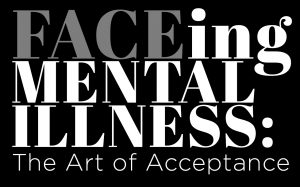Get Involved

 Become a Thought Partner
Become a Thought Partner
Partner with us to produce thought leadership that moves the needle on behavioral healthcare.
 Other options to get involved
Other options to get involved

Thank you!
We received your information and will be in contact soon!
Get Involved

 Grantmaking
Grantmaking
We fund organizations and projects which disrupt our current behavioral health space and create impact at the individual, organizational, and societal levels.
 Participatory Funds
Participatory Funds
Our participatory funds alter traditional grantmaking by shifting power
to impacted communities to direct resources and make funding decisions.
 Special Grant Programs
Special Grant Programs
We build public and private partnerships to administer grant dollars toward targeted programs.
 Program Related Investments
Program Related Investments
We provide funds at below-market interest rates that can be particularly useful to start, grow, or sustain a program, or when results cannot be achieved with grant dollars alone.
Get Involved

 Tia Burroughs Clayton, MSS
Tia Burroughs Clayton, MSS
Learning and Community Impact Consultant
Add some text here
 Alyson Ferguson, MPH
Alyson Ferguson, MPH
Chief Operating Officer
Contact Alyson about grantmaking, program related investments, and the paper series.
 Samantha Matlin, PhD
Samantha Matlin, PhD
Senior Learning & Community Impact Consultant
Contact Samantha about program planning and evaluation consulting services.
 Caitlin O'Brien, MPH
Caitlin O'Brien, MPH
Director of Learning & Community Impact
Contact Caitlin about the Community Fund for Immigrant Wellness, the Annual Innovation Award, and trauma-informed programming.
 Joe Pyle, MA
Joe Pyle, MA
President
Contact Joe about partnership opportunities, thought leadership, and the Foundation’s property.
 Bridget Talone, MFA
Bridget Talone, MFA
Grants Manager for Learning and Community Impact
Add some text here
Sarasota Herald Tribune

Program Website
Year:
2018State:
FloridaWinner Status:
ApplicantProgram Type:
AwarenessTarget Population:
CommunitySetting:
CommunityProgram Description
FACEing Mental Illness is an art/journalism program aimed at reducing the stigma of a mental health disorder diagnosis and building a more inclusive, supportive community for those in recovery. There are two main elements of the program: The first is free art workshops where anyone with a mental health disorder can create a self-portrait exploring how they feel about their illness. The second is an ongoing series of newspaper stories where participants share their mental health journeys and roads to recovery, creating greater understanding and empathy and eliminating negative stereotypes and misconceptions. Adjunct outreach activities include an exhibition of all the artwork created and education events, such as panel discussions, guest speakers and a documentary film about the project.
Creativity
The program seeks to educate and inform via the visual arts medium, allowing participants a unique way to share their experiences, without having to put it into words, and viewers to understand the challenges of a mental disorder on a visual, emotional and instantaneous level. The creation of a self portrait and an accompanying statement about the catalyst for their artwork helps participants come to a greater level of acceptance of their diagnosis and empowerment over their illness. Viewing an exhibition of the self portraits helps others better understand, accept and relate to the challenges faced by individuals with mental illness and helps create a bond of supportive understanding between the two groups.
Leadership
The program was designed and led by Sarasota Herald Tribune reporter Carrie Seidman, who coordinated all aspects of the project. These included outreach to local mental health organizations, schools, businesses and governmental organizations, both to solicit participants and create a volunteer force and funding to support the projects events. A website (http://faceingmentalillness.heraldtribune.com) was created to house all the artwork and stories created within the project, as well as a mental health blog reporting on local mental health issues. A social media support group on Facebook was also established. The main avenues of dissemination were: free, public art exhibition; weekly stories in the newspaper; a book of collected artwork and stories; a documentary film; panel discussions with local mental health experts; guest speaker event; and social media. The program could be easily replicated in other communities willing to coordinate such a collaborative effort.
Sustainability
The initial project was part of a fellowship from The Carter Center for Mental Health Journalism, that included $10,000 in funding. Another approximately $12,000 was raise locally via a nonprofit project fund established at a local community foundation. Existing partner organizations include media publication (Sarasota Herald Tribune); governmental agencies (Mental Health, Comprehensive Treatment and Drug Courts); mental health organizations (Mental Health Community Centers; Vincent Academy vocational/job center); community foundations; private foundations; businesses (in kind donations); arts organizations (Arts and Cultural Alliance of Sarasota County); and community residents.
Replicability
Project leader Seidman maintained a log of all activities and organizational efforts required, a chronological time frame, and costs and material needs. The hope is to bring the art show to other communities for an educational exhibition and the to guide those interested in establishing their own local programs. The project could be overseen locally by a nonprofit organization, a media entity or a community foundation, supported by a volunteer work force.
Results/Outcomes
The art exhibition reached an estimated 20,000 viewers. Almost 50 stories ran weekly in the newspaper from November 2016 to October 2017. Surveys of participants and viewers/readers showed an overwhelmingly positive effect, evidencing greater understanding and acceptance and reduction of stigma, misconception and negativity surrounding mental illness.











